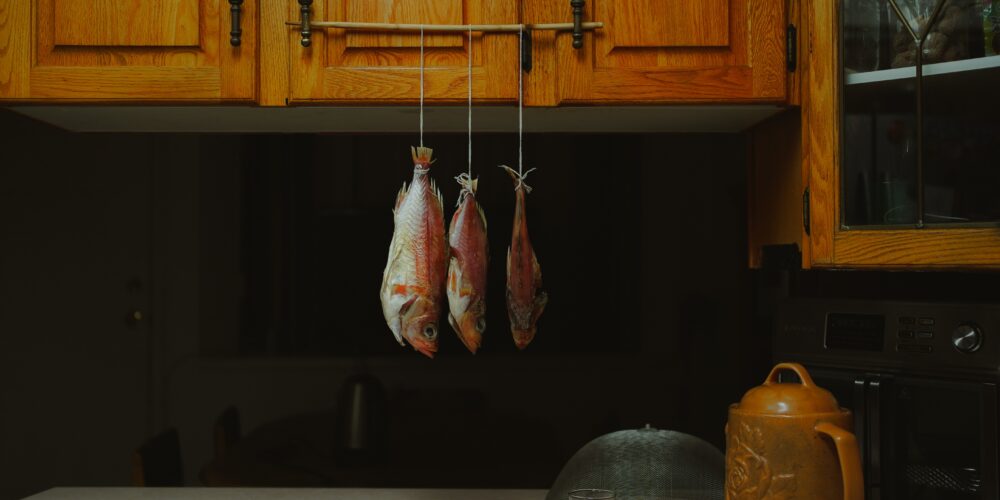
Modern Kitchen Appliance Maintenance: Keeping Your Appliances in Top Shape
Modern kitchen appliances have become an integral part of our daily lives, making meal preparation and cooking more efficient and enjoyable. To ensure that these appliances continue to perform at their best and have a long lifespan, proper maintenance is essential. In this blog post, we’ll explore valuable tips and guidelines to keep your modern kitchen appliances in top shape.
Refrigerator Maintenance
- Clean the Coils: Regularly clean the condenser coils located either at the back or bottom of the refrigerator. Dust and debris accumulation can reduce the efficiency of the cooling system.
- Check Door Seals: Ensure that the door seals are intact and free from cracks. A tight seal prevents cold air from escaping, saving energy and preserving food freshness.
- Temperature Settings: Keep an eye on the refrigerator’s temperature settings. The ideal temperature range for the fridge is between 37°F and 40°F (2.8°C to 4.4°C).
Oven and Stove Maintenance
- Regular Cleaning: Clean the oven and stove regularly to prevent grease and food buildup. Use non-abrasive cleaners to avoid damaging the surfaces.
- Check Burner Flames: If you have a gas stove, check the burner flames regularly. They should be blue and stable, indicating proper combustion.
- Oven Calibration: Periodically check the oven’s temperature calibration using an oven thermometer to ensure accurate cooking temperatures.
Dishwasher Maintenance
- Clean the Filter: Regularly clean the dishwasher’s filter to prevent clogs and ensure proper drainage.
- Check Spray Arms: Inspect the dishwasher’s spray arms for clogs or blockages that may affect their performance.
- Run an Empty Cycle: Occasionally run an empty dishwasher cycle with a cup of vinegar to remove any buildup and maintain freshness.
Microwave Maintenance
- Clean the Interior: Wipe down the microwave’s interior after each use to prevent food splatters and odors.
- Check Door Seal: Ensure that the door seal is intact and clean to prevent microwave leakage.
- Avoid Metal: Never use metal utensils or containers in the microwave, as they can cause sparks and damage the appliance.
Coffee Maker Maintenance
- Regular Descaling: Descale your coffee maker regularly to remove mineral deposits and ensure optimal performance.
- Replace Filters: If your coffee maker has a water filter, replace it according to the manufacturer’s guidelines.
- Clean the Carafe: Clean the coffee carafe and all removable parts regularly to prevent coffee residue buildup.
Blender and Food Processor Maintenance
- Clean Blades and Containers: Clean the blades and containers thoroughly after each use to avoid the buildup of food residue.
- Check Blades for Sharpness: Regularly inspect blender and food processor blades for signs of dullness or damage. Replace them as needed for efficient blending.
- Store Carefully: Store blender and food processor attachments carefully to prevent damage and keep them easily accessible.
Microwave Maintenance
- Clean the Exterior: Wipe down the exterior of the microwave regularly to remove dust and grease. Use a mild detergent and a damp cloth to avoid scratching the surface.
- Avoid Overheating: To prevent damage to the microwave’s internal components, avoid running it empty or overheating it for extended periods.
- Inspect Door and Latch: Regularly check the microwave’s door and latch to ensure they are working properly and sealing tightly.
Coffee Maker Maintenance
- Descale Regularly: Depending on your water’s hardness, descale your coffee maker every few months to prevent mineral buildup that can affect taste and performance.
- Replace Filters: If your coffee maker has a water filter, follow the manufacturer’s guidelines for replacing it to maintain water quality.
- Clean the Carafe and Parts: Wash the coffee carafe, filter basket, and other removable parts after each use to prevent coffee residue buildup.
Blender and Food Processor Maintenance
- Blade Care: Handle blender and food processor blades with care when cleaning them to avoid injury and maintain sharpness.
- Container Cleaning: Clean blender and food processor containers thoroughly after each use to avoid food residue accumulation.
- Motor Base Cleaning: Wipe down the motor base of blenders and food processors to remove spills and prevent damage to the electrical components.
Dishwasher Maintenance
- Run Hot Water First: Before starting the dishwasher, run hot water in the sink until it’s hot to ensure the dishwasher starts with hot water.
- Proper Loading: Load the dishwasher carefully, ensuring that no items obstruct the spray arms and water can circulate freely.
- Clean the Spray Arms: Regularly inspect and clean the dishwasher’s spray arms to remove debris that may affect their performance.
Refrigerator Maintenance
- Temperature Check: Periodically check the refrigerator’s temperature with a thermometer to ensure it stays within the safe range.
- Vacuum Dust and Debris: Vacuum the coils and vents at the back or bottom of the refrigerator to remove dust and debris.
- Door Seal Inspection: Check the refrigerator’s door seals for signs of wear and tear and replace them if necessary to maintain energy efficiency.
Oven and Stove Maintenance
- Self-Cleaning Oven: If your oven has a self-cleaning feature, use it periodically to remove grease and grime.
- Stove Drip Pans: Clean stove drip pans regularly or replace them if they are beyond cleaning.
- Check Gas Burners: For gas stoves, regularly check the burners for clogs and clean them as needed for efficient gas flow.
Regular Maintenance Schedule
To keep track of your modern kitchen appliances’ maintenance, create a regular maintenance schedule. Note down the recommended maintenance tasks and their frequency for each appliance. This schedule will serve as a helpful reminder to ensure you stay on top of proper appliance care.
By following these maintenance guidelines and incorporating a regular schedule, you can enjoy the full benefits of your modern kitchen appliances and extend their lifespan. Remember, regular maintenance not only improves appliance performance but also ensures a safer and more efficient kitchen.
